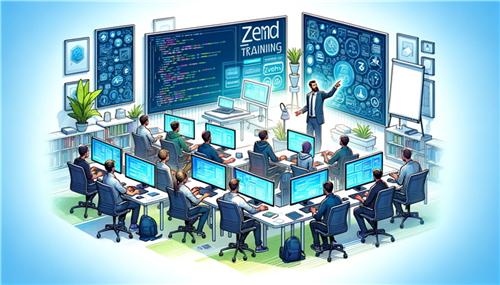
In today's fast-paced world, effective problem-solving skills are crucial for success in both personal and professional life. Organizations and individuals constantly face challenges that require innovative solutions and strategic thinking. A Problem Solving Course equips participants with the essential skills to tackle these challenges, make informed decisions, and enhance their overall effectiveness in various settings.
This blog will explore the key skills you can expect to learn in a problem-solving course, providing insights into how these skills can empower you to face challenges head-on and achieve your goals.
Skills You’ll Learn in a Problem Solving Course
1. Critical Thinking
Critical thinking is the cornerstone of effective problem-solving. It involves analyzing information, evaluating different perspectives, and making reasoned judgments. A problem-solving course typically emphasizes the development of critical thinking skills, enabling participants to approach problems systematically.
Key Components of Critical Thinking:
- Analysis: Learning to break down complex problems into manageable parts and understanding the relationships between those parts.
- Evaluation: Assessing the credibility and relevance of information sources, as well as the quality of arguments and evidence.
- Inference: Drawing logical conclusions based on available information and recognizing the implications of those conclusions.
By honing your critical thinking abilities, you can approach problems with a more objective mindset, leading to better outcomes and more informed decisions.
2. Creative Problem Solving
In addition to critical thinking, creativity plays a vital role in problem-solving. A problem-solving course often includes techniques to stimulate creative thinking and encourage innovative solutions.
Techniques for Enhancing Creativity:
- Brainstorming: Generating a wide range of ideas without immediate judgment, fostering an open-minded atmosphere for creativity.
- Mind Mapping: Visualizing connections between ideas and concepts to explore different approaches and solutions.
- SCAMPER Method: A technique that encourages participants to Substitute, Combine, Adapt, Modify, Put to another use, Eliminate, and Reverse elements of a problem to generate new ideas.
Learning to think creatively allows you to break free from conventional patterns and develop unique solutions that may not be immediately apparent.
3. Analytical Skills
Analytical skills are essential for breaking down complex problems and identifying underlying issues. A problem-solving course will help you develop these skills through structured methodologies and frameworks.
Analytical Skills You’ll Develop:
- Data Analysis: Learning to collect, organize, and interpret data to identify trends, patterns, and anomalies that inform decision-making.
- Root Cause Analysis: Techniques such as the “5 Whys” or Fishbone Diagram to dig deep into problems and uncover their root causes rather than just addressing symptoms.
- Decision-Making Frameworks: Familiarity with various decision-making models, such as the SWOT analysis (Strengths, Weaknesses, Opportunities, Threats) and decision trees, to guide your thought process.
With strong analytical skills, you can effectively dissect problems, making it easier to find targeted and sustainable solutions.
4. Effective Communication
Effective communication is a crucial skill in problem-solving, as it ensures that ideas, solutions, and feedback are clearly conveyed among team members and stakeholders. A problem-solving course typically emphasizes the importance of communication in the problem-solving process.
Aspects of Effective Communication:
- Active Listening: Developing the ability to listen attentively and understand different perspectives without immediately jumping to conclusions.
- Clarity and Conciseness: Learning to express ideas clearly and succinctly, making it easier for others to grasp complex concepts.
- Constructive Feedback: Providing and receiving feedback in a way that fosters growth and improvement rather than defensiveness.
By improving your communication skills, you can collaborate more effectively with others, ensuring that solutions are understood and embraced by all involved.
5. Collaboration and Teamwork
Many problems require collaborative efforts to solve, making teamwork an essential skill in any problem-solving course. Participants will learn how to work effectively with others to achieve common goals.
Key Elements of Collaboration:
- Diversity of Thought: Understanding the value of diverse perspectives and experiences within a team, leading to richer discussions and more innovative solutions.
- Role Allocation: Learning how to assign roles based on individual strengths, ensuring that everyone contributes effectively to the problem-solving process.
- Conflict Resolution: Developing strategies for managing disagreements and conflicts that may arise during collaborative efforts, ensuring that the team remains focused on solutions.
Effective collaboration allows teams to leverage their collective strengths, resulting in better outcomes and more comprehensive solutions.
6. Decision-Making Skills
Problem-solving often culminates in making decisions. A problem-solving course will guide participants through various decision-making techniques, helping them make informed choices based on analysis and creativity.
Decision-Making Techniques Covered:
- Cost-Benefit Analysis: Weighing the potential costs and benefits of different solutions to identify the most viable options.
- Risk Assessment: Evaluating potential risks associated with various courses of action, enabling more informed decisions.
- Consensus Building: Learning to facilitate discussions and negotiations to reach a consensus among stakeholders, ensuring that decisions are supported by the team.
Developing strong decision-making skills empowers you to navigate uncertainties and choose the best path forward confidently.
7. Adaptability and Flexibility
In a rapidly changing world, adaptability is a crucial skill in problem-solving. A problem-solving course will teach you how to remain flexible in your approach, adjusting strategies as new information emerges or situations change.
Building Adaptability:
- Embracing Change: Learning to view change as an opportunity for growth rather than a setback, fostering a positive mindset.
- Continuous Learning: Understanding the importance of ongoing learning and improvement, allowing you to adapt to new challenges and technologies as they arise.
- Scenario Planning: Developing the ability to anticipate different outcomes and prepare alternative plans to respond to unexpected developments.
By cultivating adaptability, you’ll be better equipped to handle complex problems in dynamic environments.
8. Time Management
Effective problem-solving often requires efficient use of time, especially in fast-paced settings. A problem-solving course will introduce you to time management techniques that enhance your ability to prioritize tasks and manage deadlines.
Time Management Strategies:
- Prioritization: Learning to identify the most critical tasks that will have the greatest impact on solving the problem at hand.
- Setting SMART Goals: Understanding how to set Specific, Measurable, Achievable, Relevant, and Time-bound goals to guide your problem-solving efforts.
- Time Blocking: Allocating specific blocks of time for focused work, minimizing distractions and enhancing productivity.
Strong time management skills ensure that you can approach problems systematically and efficiently.
9. Emotional Intelligence (EI)
Emotional intelligence is the ability to recognize and manage your emotions and those of others. It plays a significant role in problem-solving, especially when working with teams or stakeholders.
Aspects of Emotional Intelligence:
- Self-Awareness: Understanding your own emotions and how they influence your decision-making and problem-solving approach.
- Empathy: Recognizing and understanding the emotions of others, allowing you to address concerns and foster collaboration.
- Relationship Management: Building and maintaining positive relationships with team members and stakeholders, essential for effective collaboration.
Developing emotional intelligence can enhance your ability to navigate complex interpersonal dynamics during problem-solving efforts.
Conclusion
A Problem Solving Course offers a wealth of essential skills that can significantly enhance your ability to tackle challenges in various aspects of life. From critical thinking and creativity to collaboration and emotional intelligence, the skills you gain will empower you to approach problems with confidence and effectiveness.
As you enhance these skills, you’ll not only become a more effective problem solver but also a valuable asset to your team and organization. In an ever-evolving world, the ability to solve problems creatively and collaboratively is paramount to success. Enrolling in a problem-solving course is a proactive step toward unlocking your potential and navigating the complexities of modern challenges with ease.
These are just some of the essential skills you can learn in a problem-solving course. By enhancing these capabilities, you can increase your value in the job market and improve your professional performance.
At Koenig Solutions, a leading IT training company, we offer a range of problem-solving courses tailored to meet the needs of professionals in various fields. Whether you're looking for a problem-solving programming course or a more general problem-solving skills course, we have the right program for you. Explore our offerings today!







COMMENT